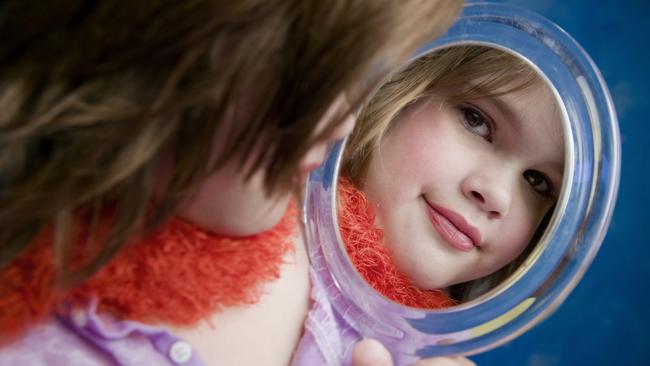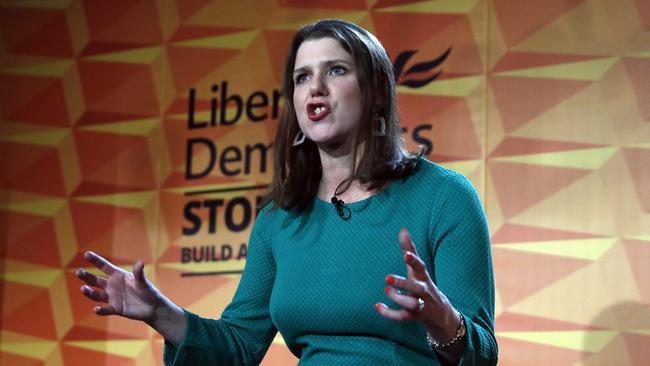Kylie Lang: Should we stop telling our daughters they are beautiful?
Parents who crow about their children’s appearance are doing damage. But if we can’t tell our kids they’re beautiful, what healthy praise can we give instead, asks Kylie Lang.
Rendezview
Don't miss out on the headlines from Rendezview. Followed categories will be added to My News.
Stop telling your daughters they are beautiful.
Girls are more than their looks, and it’s time parents realised the damage they are doing. Has feminism taught us nothing?
So opined a friend this week after a glut of social media posts by mothers and fathers crowing about their offspring’s appearance, as if it was the child’s single greatest defining characteristic.
There they were, these girls, beautiful at the beach, beautiful playing sport, beautiful eating breakfast.
Mothers in their 40s are the worst offenders, my friend reckons, and they should know better.
What about telling girls they are smart, capable and strong, and that they can achieve so much beyond the facade the world sees?
“It’s taking feminism back decades, to when the expectation on young women was to be pretty enough that a man would want to marry them, and they would sacrifice their own careers to become docile little homemakers,” she says.
While I see her point, the issue is not so clear cut.

On closer inspection, it’s actually quite vexing.
Beauty, after all, is not purely physical. It takes in kindness, generosity, empathy and the many other attributes that fall under the “inner-beauty” umbrella.
And let’s face it, most of us genuinely believe that our kids are beautiful in the fullest sense.
Telling them so surely can’t be a bad thing, especially when as adults they will encounter plenty of people who won’t regard them so fondly.
A parent’s admiration can be a buffer against the brutal.
Yet we come under fire for saying what comes quite naturally to us.
MORE FROM KYLIE LANG: Why tattoo removal clinics are on the rise
A few years ago there was a spate of so-called feminist rants following a statement by British member of parliament Jo Swinson, now the Leader of the Liberal Democrats.
Ms Swinson was 33 and childless (she’s since had two sons) and said families should praise intelligence.
“I know as an aunt, you fall into the trap of turning to your niece and saying, ‘you look beautiful’ – because of course all children do look beautiful – but if the message they get is that is what’s important and that is what gets praise, then that’s not necessarily the most positive message,” she told The Telegraph.
“It’s not like saying that appearance doesn’t matter at all,” Ms Swinson said.

“If you’re going for an interview, you will dress smartly and look the part, that is absolutely fine, but it’s just the level to which this becomes the ultimate focus of everything, where you have people who won’t go to school unless they’ve put their make-up on, or won’t leave the house unless they’ve spent two hours getting ready.”
She makes some reasonable points, however according to research, telling kids they are clever is also fraught.
READ MORE FROM KYLIE LANG: Anti ageing tips, products are worthless
Psychologist Carol Dweck, from Stanford University, has spent more than 40 years studying motivation, and understanding how people reach their potential.
Dr Dweck says praising intelligence sets kids up to fail.
When parents compliment children on how smart they are, this sends a message that being smart is of enormous value to mum or dad (and kids generally aim to please, despite the blip of teenage rebellion).
It also implies that being smart is an ability they are born with when, in fact, hard work and effort are typically required to achieve (in any task, not only school work).
Dr Dweck has discovered that kids who are told, “You did really well; you must have worked hard at this” do far better academically and socially than those who hear, “You did really well, so you must be smart”.

Focusing on the effort it takes to achieve encourages children to take risks, learn resilience and grow their talents. “Clever” kids can be complacent, fearful of failure, and constrained in their thinking.
What are parents to do? We’re damned if we tell our children they’re beautiful and damned if we tell them they’re intelligent.
What’s left?
Plenty, actually. We can start by explaining what we mean by beautiful, that it involves inner qualities that shine brighter than any exterior.
We can talk about society’s obsession with physical beauty and why it is futile to try to measure up to imposed ideals.
We can point out to our kids the lessons they have learned through failure or disappointment, and the rewards reaped from trying their best and stepping outside their comfort zone.
Instagram is a visual medium so sharing images we find attractive is a given, but it shouldn’t be at the exclusion of conversations in real time about what kids need to develop the self-confidence and resilience they need to succeed in the real world where filters and likes don’t apply.
Kylie Lang is the associate editor of The Courier-Mail.


